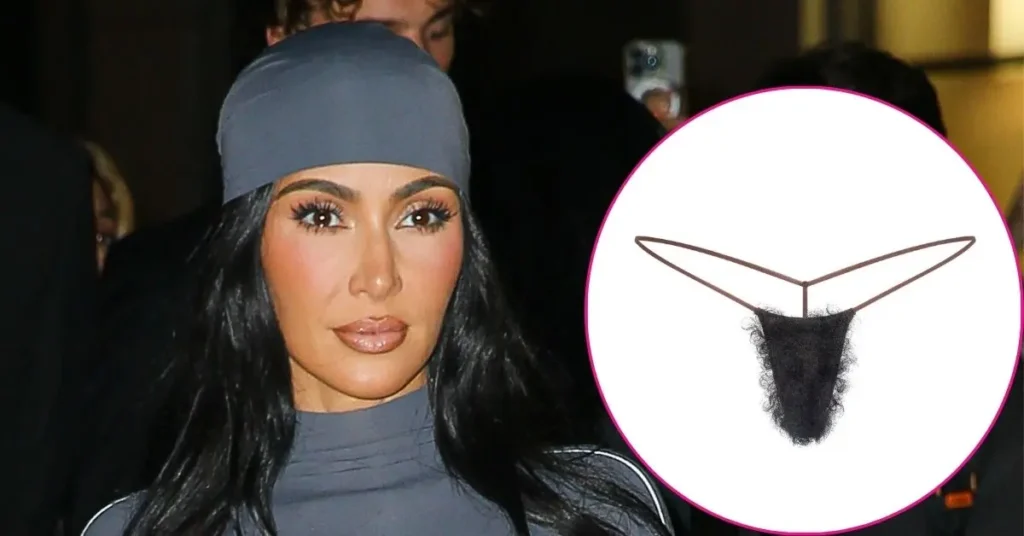Kim Kardashian has once again stirred global debate following the launch of a provocative new SKIMS product — a faux pubic-hair thong. The design, featuring sheer fabric and textured detailing meant to mimic natural hair, has polarized fans, critics, and fashion commentators alike.
Unveiled as part of SKIMS’ limited-edition experimental collection, the piece was marketed as a “celebration of body positivity and authenticity.” However, the response online has been anything but uniform. Social media users flooded platforms like TikTok and X (formerly Twitter) with mixed reactions, with some calling it “bizarre,” “unnecessary,” and “a marketing stunt designed to shock rather than empower.”
Divided Reactions: Empowerment or Exploitation?
Fashion insiders note that SKIMS has long been praised for reshaping the shapewear industry through inclusivity, skin-tone diversity, and comfort-driven design. Yet this latest release appears to mark a shift toward provocative, conversation-driven fashion. Supporters applaud the piece as a bold move that challenges traditional beauty standards and embraces body hair as a symbol of authenticity. Detractors, on the other hand, argue that it exploits controversy for publicity and trivializes meaningful conversations about natural beauty and feminism.
“This isn’t empowerment — it’s marketing masquerading as activism,” one fashion critic wrote. Others, however, see it as a creative statement on naturalism and body acceptance, reclaiming aesthetic choices once stigmatized by mainstream beauty culture.
Viral Storm and Marketing Speculation
Within hours of the reveal, the faux pubic-hair thong went viral, trending under hashtags like #SKIMSFail and #PubicHairThong. The product sparked millions of views and a storm of commentary across digital platforms, ensuring that SKIMS once again dominated headlines.
Marketing analysts suggest that the uproar may have been strategically engineered. In today’s viral fashion landscape, shock value often translates into sales. Kim Kardashian, who has repeatedly leveraged controversy to fuel brand visibility, has not yet commented publicly on the backlash. Nevertheless, SKIMS continues to promote the collection through its official channels.
A Cultural Conversation Reignited
Beyond fashion, the launch has reignited broader cultural discussions on self-expression, authenticity, and the commodification of empowerment. Some feminists argue that the design celebrates women’s autonomy and challenges unrealistic grooming expectations. Others dismiss it as performative provocation that reduces social discourse to a marketing gimmick.
Whether seen as a boundary-pushing statement or an ill-conceived stunt, SKIMS’ latest creation has achieved what most brands only dream of — global attention. Once again, Kim Kardashian has proven her uncanny ability to place herself at the heart of the cultural conversation, blurring the lines between art, controversy, and commerce.

